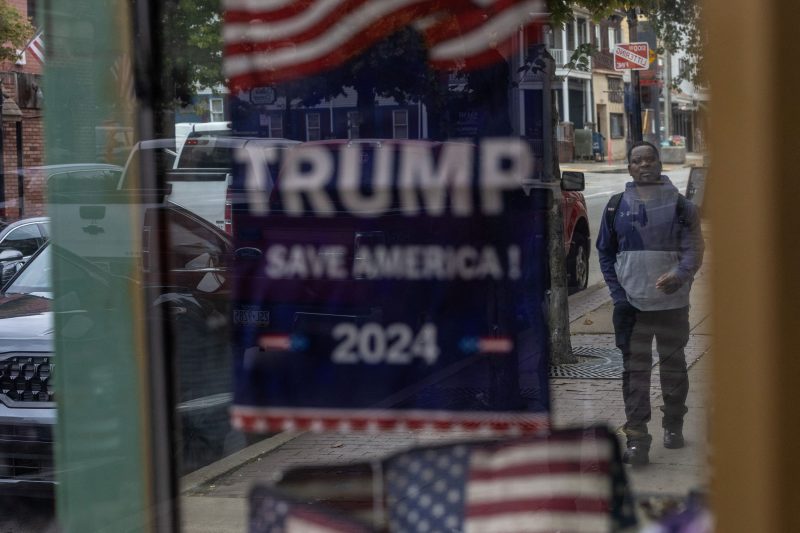In the realm of political strategy, effective messaging carries immense weight in swaying public opinion and securing voter support. As President Donald Trump gears up for the final stretch of his re-election campaign, his focus on immigration policy as a central rallying cry marks a notable shift in his closing appeals to voters. This adjustment comes as his once-strident advantage on economic issues begins to wane amid the backdrop of the ongoing pandemic and economic uncertainties.
The decision to pivot towards immigration as a key focal point reflects a calculated effort on the part of the Trump campaign to energize its base and galvanize support among key demographics. By placing emphasis on his administration’s hardline stance on immigration, President Trump aims to tap into the fears and anxieties of many Americans regarding border security, national identity, and the perceived threats posed by illegal immigration.
One of the key pillars of Trump’s immigration platform is his resolute commitment to border security and the construction of a border wall along the southern border with Mexico. This signature policy initiative, which has been a cornerstone of his presidency since his 2016 campaign, continues to resonate strongly with many of his supporters who view it as a necessary and effective measure to safeguard American sovereignty and protect against security threats.
Moreover, Trump’s emphasis on immigration serves to draw a sharp contrast with his Democratic opponent, former Vice President Joe Biden, whose immigration policies are perceived by many conservatives as being too lenient and permissive. By framing the election as a choice between his tough, America First approach to immigration and what he characterizes as Biden’s more lax and open-border stance, Trump seeks to amplify concerns about national security and the preservation of American values.
However, as the economy continues to grapple with the fallout from the COVID-19 pandemic, Trump’s once commanding lead on economic issues has shown signs of vulnerability. With millions of Americans facing job losses, business closures, and financial hardship, the President’s campaign faces the challenge of convincing voters that his economic stewardship remains the best path forward in the midst of unprecedented uncertainty.
In this context, the strategic pivot to immigration as a central theme in Trump’s closing appeal represents a calculated gambit aimed at reinvigorating his base, solidifying support among key constituencies, and reshaping the narrative of the campaign in his favor. Whether this shift will prove successful in the final weeks leading up to the election remains to be seen, but it underscores the enduring importance of messaging and strategy in the high-stakes arena of presidential politics.


























